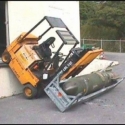|
fat bossy gerbil posted:I remember reading somewhere that Nazi ideology seriously infected and hurt their industrial design and production but I’m looking for specific examples of how hosed their industry was in relation to the other major powers in the war. Except for the Japanese, who from what I understand were almost equally as bad in regards to industry. Basically only the USA and the Soviet Union had modern fordian factories and production methods. All the rest had "boutique workshops".
|
|
|
|

|
| # ? Jun 10, 2024 19:54 |
|
ChubbyChecker posted:Basically only the USA and the Soviet Union had modern fordian factories and production methods. All the rest had "boutique workshops". Even the British? I know about lend lease and the like, but all the pictures of UK production facilities look more-or-less like US ones.
|
|
|
Milo and POTUS posted:Did the IJN and IJA ever come to blows, so to speak? Put aside the passive aggressiveness and just shoot one another? It seems a silly question but at the same time I wouldn't be surprised
|
|
|
|
|
Argas posted:IIRC one of Japan's issues pre-war that stuck around through the war and afterwards is having a lot of mom & pop workshops as part of its industrial machine. Sure, there's the pro that they can't just bomb your obvious factories but the drawback is that these are relatively tiny shops and they aren't suited to scaling up. According to some relatives of mine, by the end of the war they were building rifles and sewing uniforms in school in lieu of actually learning as the war situation had gotten that desperate.
|
|
|
|
Oh yeah, this is kind of obvious in retrospect but the Nazis were very reluctant to employ women in factories for too long.
|
|
|
|
Davin Valkri posted:Even the British? I know about lend lease and the like, but all the pictures of UK production facilities look more-or-less like US ones. Balloon fish and their excellent post on the specifics of production in the previous milhist thread. My less detailed but slightly different post on the structure of the industry and how/why it came to be. The first half of this post is kinda relevant because it talks about the long term problems with british industrial investment that lead to this. Broadly however as a summary, Britain had neither the cash, space, time or skills to create true mass production as we would understand it, nobody did other than the US really in the interwar because everyone was so friggin poor after ww1. The Soviets paid an absolutely terrible price to get their industry in lives and money off the Americans, British industry was far more similar to German in its structure, craft built, small factories, however it managed to have far more cooperation and standardisation which rendered it pound for pound more efficient at its job. I cant quite remember if we out produced germany in tanks but the numbers were very comparable and this was in a case where it was very much not the primary national focus (which was largely heavy bombers).
|
|
|
|
Argas posted:Oh yeah, this is kind of obvious in retrospect but the Nazis were very reluctant to employ women in factories for too long. This is a misconception. The reality is compared to other WW2 belligerents, more German women were already in the workforce before the war started, so that well started dry.
|
|
|
|
bewbies posted:
Huh. Seems the Virginias are the first subs to have purely electronic periscope with no physical light path between the captain's eye and the external road. I figured the LAs and Ohios would be like that by now, but apparently not. steinrokkan posted:Well, I can only speak of my experience in the Polish navy, but we would turn down the lights so the hostiles couldn't spot the submarine through the screen doors. Dude, don't make fun of the Poles. Their army just bought 10,000 septic tanks and as soon as they learn how to drive them they're going to invade Russia.
|
|
|
|
Splode posted:This is a misconception. The reality is compared to other WW2 belligerents, more German women were already in the workforce before the war started, so that well started dry. Huh, didn't know that.
|
|
|
|
Didn't Germany have a large number of women employed in the agriculture sector, which is what not possible to reassign without everything collapsing?
|
|
|
|
Polyakov posted:The first half of this post is kinda relevant because it talks about the long term problems with british industrial investment that lead to this. quote:I have rather gone off on one, but I think it helps to underline the point that Britain was woefully uncompetitive in tits exports which could only survive as long as the empire existed to prop it up. This was because they saved the majority their production for internal consumption on page 3.
|
|
|
|
The Lone Badger posted:Didn't Germany have a large number of women employed in the agriculture sector, which is what not possible to reassign without everything collapsing? Yeah, that was a lot of it. If you took them off the farms and sent them to be Rosie the Riveter everything would have collapsed.
|
|
|
|
Splode posted:This is a misconception. The reality is compared to other WW2 belligerents, more German women were already in the workforce before the war started, so that well started dry. Kiiiind of, a huge amount were employed rurally in farming because they needed to be and were part of Germany hugely manpower inefficient farming sector which was barely out of the feudal age, but the nazis were not keen on women joining the urban workforce so much as having children. There was some concession to wartime need in urban areas but they were not happy about it.
|
|
|
|
Davin Valkri posted:Even the British? I know about lend lease and the like, but all the pictures of UK production facilities look more-or-less like US ones. Their early-war tanks were built by locomotive companies and consequently ended up like locomotives, all unique with bespoke parts. The Crusader was made by a subsidiary of Morris Motors, thought by most accounts it wasn't a great vehicle. They did produce a lot more of them than the other models though. I don't know about their late-war tanks like the Cromwell.
|
|
|
|
Polyakov posted:Kiiiind of, a huge amount were employed rurally in farming because they needed to be and were part of Germany hugely manpower inefficient farming sector which was barely out of the feudal age, but the nazis were not keen on women joining the urban workforce so much as having children. There was some concession to wartime need in urban areas but they were not happy about it. Sure, it was agricultural work, but that's still work. The idea that nazi Germany didn't fully mobilise is common and not really true, they just sucked at mobilising. The economy was fully redlined it was just poo poo.
|
|
|
|
Splode posted:Sure, it was agricultural work, but that's still work. The idea that nazi Germany didn't fully mobilise is common and not really true, they just sucked at mobilising. The economy was fully redlined it was just poo poo. Yes certainly you are correct, I just wanted to fill in a bit of nuance and did it badly. They were very reluctant generally to employ women in traditionally "male" roles like factory work. Looking at the absolute numbers of what exactly women were employed to do in Nazi germany the quantity of women employed in heavy/medium industry was actually to fall in the period 39-44, (The proportion was to rise but that was due to the fact that lots of men were leaving the workforce). The sectors to see significant rises were Civillian administration, Military administration, electrical generation and Transport, i would imagine that they saw those are more suitable for women to replace men in areas like secretarial and clerical work. But the total quantity in general would remain about constant which does indeed indicate there was very little slack for additional women to be employed.
|
|
|
|
Davin Valkri posted:Even the British? I know about lend lease and the like, but all the pictures of UK production facilities look more-or-less like US ones. They were better than the Germans but still had some major issues. One of Rolls-Royce's engineers recalled what happened when they licensed the Merlin to Packard for American mass production: Sir Stanley Hooker posted:“One day their Chief Engineer appeared in Lovesey’s office, which I was then sharing, and said, ‘You know, we can’t make the Merlin to these drawings.’ Instead of tight tolerances "they employed highly-trained “fitters” to assemble the engines. The fitters filed or otherwise massaged individual parts to achieve a precise fit. They even tightened critical bolts by trained feel, rather than with calibrated torque wrenches. In effect, each Rolls-Royce-manufactured Merlin was a hand-built engine that reflected the company’s traditions of premium quality and craftsmanship." Very clever, and nobody can argue with the results Rolls-Royce got in terms of making a drat good engine, but it's not the sort of thing you can scale up to any war-winning degree. Vincent Van Goatse fucked around with this message at 10:28 on Dec 15, 2019 |
|
|
|
Polyakov posted:Yes certainly you are correct, I just wanted to fill in a bit of nuance and did it badly. They were very reluctant generally to employ women in traditionally "male" roles like factory work. Looking at the absolute numbers of what exactly women were employed to do in Nazi germany the quantity of women employed in heavy/medium industry was actually to fall in the period 39-44, (The proportion was to rise but that was due to the fact that lots of men were leaving the workforce). The sectors to see significant rises were Civillian administration, Military administration, electrical generation and Transport, i would imagine that they saw those are more suitable for women to replace men in areas like secretarial and clerical work. But the total quantity in general would remain about constant which does indeed indicate there was very little slack for additional women to be employed. I'd actually forgotten the details of why, so thanks! Also that Rolls Royce story is one of my favourites
|
|
|
|
Argas posted:Oh yeah, this is kind of obvious in retrospect but the Nazis were very reluctant to employ women in factories for too long. derp, splode and polyakov said that
|
|
|
|
So we hear all this about how the Germans and Japanese had these internal power struggles that kept them from operating efficiently, whereas UK/US economies were more cooperative. Would you say this difference is ideological in nature, or more or less just happenstance? That is, say the US was run by explicit white supremacists, and the Germans were run by, uh, rear end in a top hat FDR (that is, running a government on the basis of public works and, in this case, vast investment into the wartime economy). Would you expect the German economy to be more cooperative in such circumstances, and the American economy to be more self-sabotaging?
|
|
|
|
HEY GUNS posted:That's less because of ideology and more because those women worked on farms. Just like they had small factories they also had small farms, and this isn't like industry where one partner "goes somewhere" to "work" and the other one "stays home:" a female farmer is also a farmer, and once her husband is drafted she is trying to do the work of two people already. The other aspect of this is that one of the reasons for German factories being the way they were is that to appease unions and the home front they had to employ primarily skilled labourers, compared to the relatively unskilled labour required on US/Soviet production lines. The Nazis were in general reluctant to do anything to impose hardship on the German population after the experience of WWI, leading to things like avoiding imposing food rationing while slave mineworkers starved for lack of calories.
|
|
|
|
Naziism was set up explicity in order to create these self competing fiefs in order to preserve the leadership from having developing independent power blocs that would cause problems, this is not unique to Naziism and is employd by many dictators throughout history, Stalin was particularly fond of it, so was Saddam to take us to a different era. The distinction as to why Germanies industry functioned so much less well than the Soviets is a combination of factors (investment being the biggest one) but relevant to this discussion comes down to the degree of central control exerciseable by the government of the USSR being so much stronger than that of the Nazis. They were capable of enfocing uniformity because their grasp on power was much greater, whereas Naziism largely collaborated with these interests in order to come to power rather than smashing them flat as the USSR had done periodically (remember that the architects of the soviet industrial revolution under stalin were all shot), this meant that the Nazis had to consider their interests or felt they did in order to remain in power. However there was still a great deal of internal unrest and strife that sabotaged soviet industry as well they just had So drat Much of it they could take the hit and keep on trucking. Imperial Japan grew more organically from the long running rivalries that stretch back to the feudal japan era i believe, i cant remember precisely but i believe that the progenitors of the modern IJN and IJA were in two competing family houses who formd the majority of the agenda of each organisation, this combined with the fact that the government could not tell the armed services to sit down, shut up and behave, like you can with what we conceive of as a professional military in the Western sense, and the scarcity of resources for Japan because the Japanese home islands are just eye wateringly poor in natural resources meant that conflict was inevitable. its also the case that different very powerful business interests were aligned behind the Army and the Navy which added to the political deadlock and the cut-throat nature. The issue is not the racism (in this very narrow area), the issue is having a system of peverse incetives which are designed to protect entrenched interest groups (The party, the army, the fuhrer). Humans will generally optimise for the ruleset you put them in. The primary concern for much of the US and UK was winning the war or surviving as a nation. You didnt need to fear getting dicked on by your own team so much, whereas in the other nations mentioned this was a very serious consideration.
|
|
|
TooMuchAbstraction posted:So we hear all this about how the Germans and Japanese had these internal power struggles that kept them from operating efficiently, whereas UK/US economies were more cooperative. Would you say this difference is ideological in nature, or more or less just happenstance? That is, say the US was run by explicit white supremacists, and the Germans were run by, uh, rear end in a top hat FDR (that is, running a government on the basis of public works and, in this case, vast investment into the wartime economy). Would you expect the German economy to be more cooperative in such circumstances, and the American economy to be more self-sabotaging?  The US would have had an efficient industrial system after a fashion if only because we had invented the systems and methods generally called "modern." I'm sure we had old legacy crap too of course but the scale of what the US could do was legitimately on a different level from what anyone else, save the Soviet Union, could have done. (China obviously had the physical resources but not the political unification.) To a certain extent the criticism comes because they lost. e: As for Japan, to what extent were they basically run by the IJA? I know the pre-war government was more or less brought down by "young hotheads" who "just couldn't help but" "assassinate civilian leaders who opposed army plans for expansion in Manchukuo."
|
|
|
|
|
I've seen Adam Tooze's name come up in some of the earlier posts, so I'd like to add on to those contributions. German agriculture is a major component of Tooze's analysis and how applications or misinterpretations of economic considerations drove the worst elements of Nazi policy. He cites the 1933 German census, which reveals that just under a third of German employment was in agriculture with substantial inequality in landholdings. After 1933, an elaborate series of production and price controls were instituted to manage the agriculture sector of the economy. A component of lebensraum was a percieved land shortage and 'overcrowding', with an average of 2.1 hectares per farm worker, compared to 2.8 in France, 3.8 in the United Kingdom, and 12.8 hectares per farm worker in the United States (pg. 178). Germany had about 4 times as much agricultural land as the British isles, but 7 times as many farmworkers. One way to deal with this might be to encourage migration to the cities and employment in the manufacturing or service sectors, but the obsession with lebensraum meant a solution would be just seizing more farmland. Poland, for example, had an even worse ratio of farmworkers to land, and so with German policies as distorted as they were, the solution would be to expel or kill tens of millions of Poles for the land. See also Ukraine. There's also another dimension of Tooze's analysis that I appreciated. Other books emphasize the mismanagement of resources in the war economy, like Richard Overy's Why the Allies Won. Tooze alters this slightly by noting the intensity of resource shortages which already limited their war-making capabilities, and how mismanagement only made these problems worse. Take France, for example. Their farmers' morale was in shambles, and with limited coal and oil allotted for French agricultural production, their output suffered. The French harvest shrank by half between 1938 and 1941. Lack of food impacts other industries, including coal production. Reduced coal production impacts steel production. All the complicated supply and production chains that are required for an industrial economy began to break down. Germany tried to make up the gap with slave labor, which is -- in addition to its horrific moral implications -- inefficient and wasteful. There's also the issue of foreign trade. Far from being able to starve out the British Isles completely, Germany was also negatively impacted by Britain's own naval blockade. The other countries that it had conquered only provided limited amounts of military material. By the end of 1941, Germany had received less than 100 planes from France and the Netherlands. At this time, the United States had sent 5,000 planes to the British. By the end of the war, the Soviets would have received 400,000 trucks. And so on.
|
|
|
|
How did the US Army in WWII conduct class room training and briefings. Powerpoint has become the default tool for sharing information in a group setting in the modern army. If I were to sit down to a company level brief about an upcoming mission or if the soldiers needed a class on cold weather operations, how would it have been presented? It may sound weird, but we're so stuck on MS Office that it seems like the Army wouldn't function without it.
|
|
|
|
SimonCat posted:How did the US Army in WWII conduct class room training and briefings. Powerpoint has become the default tool for sharing information in a group setting in the modern army. If I were to sit down to a company level brief about an upcoming mission or if the soldiers needed a class on cold weather operations, how would it have been presented?   overhead and slide projectors, powerpoint is waaaaaaay older than computers
|
|
|
|
Polyakov posted:Imperial Japan grew more organically from the long running rivalries that stretch back to the feudal japan era i believe, i cant remember precisely but i believe that the progenitors of the modern IJN and IJA were in two competing family houses who formd the majority of the agenda of each organisation, this combined with the fact that the government could not tell the armed services to sit down, shut up and behave, like you can with what we conceive of as a professional military in the Western sense, and the scarcity of resources for Japan because the Japanese home islands are just eye wateringly poor in natural resources meant that conflict was inevitable. its also the case that different very powerful business interests were aligned behind the Army and the Navy which added to the political deadlock and the cut-throat nature. Right. You had a few factors. First is that the revolution that destroyed the Shogunate was strongest in the south, and especially in the domains of Choshu and Satsuma. Almost all the revolutionary leaders were from there, and when the Meiji restoration happened, to reward them, Choshu got the army and Satsuma got the navy. So originally, most of the army officers were from Choshu, and most of the navy officers were from Satsuma. The problem was, Choshu and Satsuma hated each other. The two domains had rivalries going back hundreds of years, and while, eventually, both the army and navy would expand past those roots, that rivalry was there from the beginning. Second, the constitution said that the army and navy were directly under the Emperor's control. The Chiefs of the General Staff weren't part of the cabinet and didn't report to the Prime Minister. On top of that, the law said that both the Army Minister and Navy Minister had to be active duty officers. There was also another law that said that if a Prime Minister couldn't fill a cabinet vacancy, the government was dissolved. So, that just meant that either the Army or Navy could refuse to pick an officer to be minister, and that would bring down the government. They only did it once (General Kazushige Ugaki was picked to be Prime Minister in 1937, but had made enemies in the Army for various reasons...his leniency to conspirators in the March incident, where some junior army officers attempted a coup, allegations that he was corrupt when he was governor of Korea, etc), but the threat was always there. That meant basically that the only one who could make the Army and Navy cooperate was the Emperor. Plus, on top of all that, both the Army and the Navy were factionalized. The Navy fought amongst itself over the Washington Naval Treaty, the Army about relationships with the Soviet Union and also about politics. (Both army factions agreed that Japan should be ruled as an authoritarian, illiberal, imperialistic dictatorship, but couldn't agree exactly what type of authoritarian, illiberal, imperialistic dictatorship it should be). It was a mess.
|
|
|
|
FuturePastNow posted:
Also blackboards and models/sand tables depending on exactly what you sort of briefing you were doing.
|
|
|
|
Poster painter was a cool job to learn about the existence of.
|
|
|
|
i watched overhead projector lectures in high school and TAed for a guy who used them in college lectures, but i am An Old by forums standards. Those things don't die, either
|
|
|
|
FuturePastNow posted:overhead and slide projectors, powerpoint is waaaaaaay older than computers Also, lots of training videos. Dr. Seuss even wrote a number of them during World War II, you can find them online.
|
|
|
|
SimonCat posted:How did the US Army in WWII conduct class room training and briefings. Powerpoint has become the default tool for sharing information in a group setting in the modern army. If I were to sit down to a company level brief about an upcoming mission or if the soldiers needed a class on cold weather operations, how would it have been presented? There's a zillion old training videos online. I love these: https://www.youtube.com/watch?v=VCGrpdG_FK4 16 inch gun training https://www.youtube.com/watch?v=4ciHwwRCeBw Early fighter pilot training
|
|
|
|
Check out this rare find https://twitter.com/Ninja998998/status/1206169260482945024
|
|
|
|
HEY GUNS posted:i watched overhead projector lectures in high school and TAed for a guy who used them in college lectures, but i am An Old by forums standards. Those things don't die, either I remember seeing a presentation in middle school history class that was a slide projector with an audio track, and the audio track had "beeps" on it when you were supposed to advance slides. This was in the early 2000s, so they may not be gone yet.
|
|
|
|
Trin Tragula posted:Effort post about wwi So mostly it was keeping your head down and fixing stuff. Did artillery units move with infantry or did they move around less because the equipment is harder to move? When fighting over shell holes and whatnot, surely those changed regularly with more bombings. Did they keep maps? How big was the average shell hole out in no man's land, ignoring big craters from mines. With wiring parties I'm assuming they would leave gaps in so they're own side could get out. I've seen that picture of the massive like cube of razor wire, and read somewhere that occasionally it was literally walls like 10 foot high. Part of the creeping barrage was to destroy that so guys could get through yeah? I read somewhere else that machine gunners tended to not last very long in an actual engagement. I'm guessing because they're static, very loud and very dangerous. How much actual cover was there crossing no man's land? I'm assuming it varies heavily depending on where you are, and is a bit less of always an empty muddy field. When you say it was unlikely that any individual soldier would be involved in an attack, how we're units chosen? Was a day picked and then it was "oh too bad for x division that's their day"? Again, I guess Vimy kind of covered a piece of that where they said units were specifically called back and given detailed training on the terrain and individual roles. Was that really the first time individuals were given more responsibility in an attack? Was it really also one of the first major uses of creeping barrage or that mostly canadian forging-of-the-nation type propaganda? How does modern day trench warfare look in comparison, given it still seems to be used in the eastern European conflicts for example. Surely smartbombs/modern artillery and jets have made it a lot more difficult to hold a position in the same way. ilmucche fucked around with this message at 22:50 on Dec 15, 2019 |
|
|
|
So I've been lurking this thread and some of its predecessors and I'm finally in a position where I'm actually caught up and have a question to ask: Soldiers being bored and doing something about that appears to be a thread favourite. What's some cases where bored soldier hijinks ended up having really significant repercussions? Not just for the people directly involved, but history books repercussions.
|
|
|
|
Innocent_Bystander posted:So I've been lurking this thread and some of its predecessors and I'm finally in a position where I'm actually caught up and have a question to ask: https://en.wikipedia.org/wiki/Sack_of_Antwerp
|
|
|
|
Depending on how broadly you define "hijinks" https://en.wikipedia.org/wiki/Mukden_Incident edit: https://en.wikipedia.org/wiki/Korean_axe_murder_incident hypnophant fucked around with this message at 23:59 on Dec 15, 2019 |
|
|
|
HEY GUNS posted:i watched overhead projector lectures in high school and TAed for a guy who used them in college lectures, but i am An Old by forums standards. Those things don't die, either My middle school in Vermont had overhead projectors in 2006, and the high school had them until around when I graduated in 2010. Hell, the community college I took classes at had those at least until 2012. Its appears in a surprising amount of places.
|
|
|
|

|
| # ? Jun 10, 2024 19:54 |
|
Innocent_Bystander posted:So I've been lurking this thread and some of its predecessors and I'm finally in a position where I'm actually caught up and have a question to ask: Here's one reason you don't leave a bunch of sailors in port for 2 years with nothing to do.
|
|
|











































